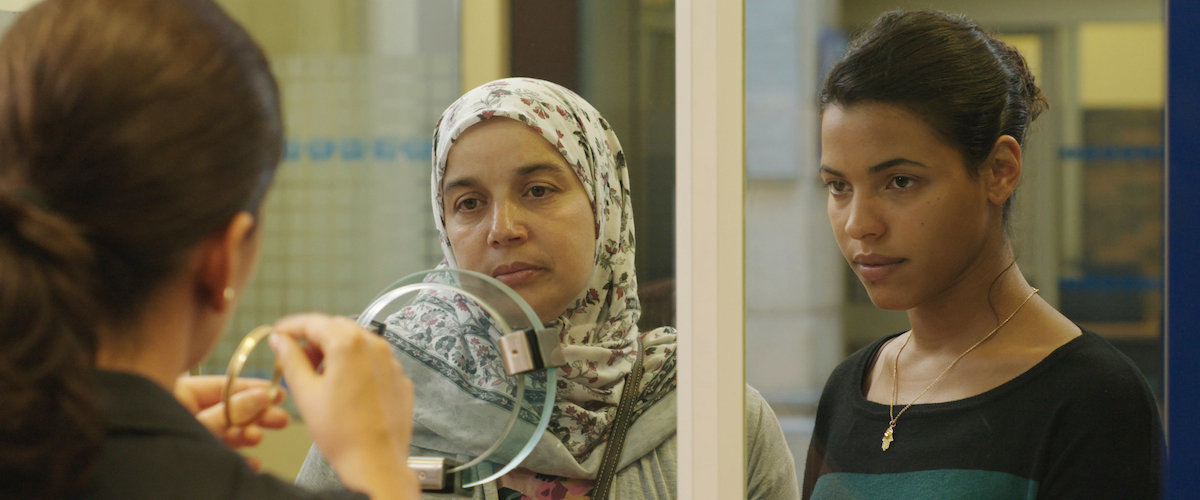By Al Jadid Staff
In a predominantly patriarchal society, living as an independent woman proves difficult. But for the title character of the award winning film “Fatima” (2015), directed by Philippe Faucon and recently awarded the César Award for Best Picture — the struggle becomes even greater. Fatima, an Algerian Muslim immigrant divorcee living in Lyon, France with two young adult daughters, works an arduous housecleaning job to support her family. Her ex-husband, whose name the author never reveals aside from referring to him as ‘Dad,’ described as more modernized in contrast to the traditional Fatima, remains on good terms with the family.
However, while Fatima does follow traditional ways of thinking, she faces her own share of rebellion and desire to deviate from the norm. Being subjected to the expectations of others, she experiences anxiety, and makes it a point to resist those expectations, especially the presumption that, as a single mother without a male in her life, she will prove unfit and incapable of surviving on her own. Fatima certainly finds raising her two daughters more difficult than she imagined, as their individual values and beliefs divide the small family. Having grown up in a North African Muslim community and culture, Fatima adheres to more traditional beliefs about the expected behaviors for women. Her daughters, 18-year-old Nesrine, and 15-year-old Souad, appear the opposite in many ways. Raised mostly in France, they have assimilated into French culture and society; when she accidentally ignores a Moroccan neighbor’s greeting while absorbed in her studies, the rest of the community dubs Nesrine, a medical student, rude and “stuck-up.” Brattier Souad rejects her mother’s ways, donning revealing clothing, keeping questionable company, and constantly shaming her mother for working in a factory, and as a housecleaner. In the eyes of the community, her daughters’ behaviors reflect Fatima’s bad parenting.
Despite this constant negative scrutiny, Fatima continues working, determined to break away from the expectations of her failure as a single mother, and a poor immigrant — but not without difficulty. This goal proves not to be without its difficulties, as Fatima works as a house cleaner for mainly wealthy clients, some of whom belittle and demean her, in one case testing her honesty by leaving money in dirty laundry. After injuring herself on the job, the pressure seems almost too much to bear, leading her to fall back on rebuilding her identity. Keeping touch with her native tongue, Arabic, the beleaguered woman writes in a journal. With direct quotations from Fatima Elayoubi’s autobiographical “Prayer to the Moon” — the inspiration for “Fatima,” the film presents the quintessential immigrant story, rich in details of culture and identity, revealing the anxieties people face in their own communities. Born in Morocco, Director Philippe Faucon, much like the film’s Fatima, spent his youth raised between Morocco and Algeria, later immigrating to France. Along with this film, he has directed “The Disintegration” (2011), “Samia” (2000), and “Sabine” (1993), among others. The film debuted on Friday, August 26 in New York, according to the New York Times.
This article appeared in Al Jadid Magazine, Vol. 21, No. 72, 2017.
Copyright © 2017 AL JADID MAGAZINE

